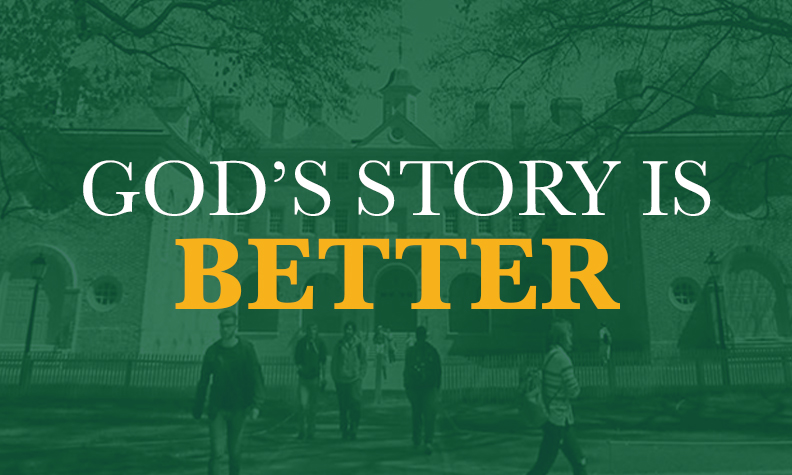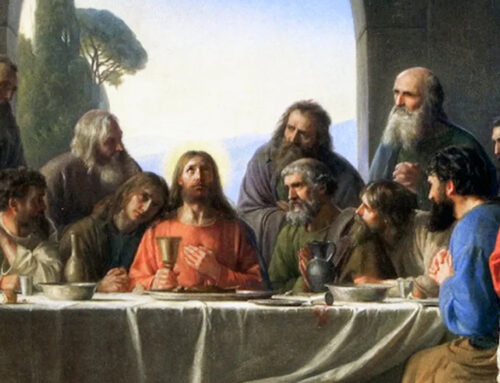Homily for 30th Sunday in Ordinary Time
Readings of the Day
Seminarians are always asked to give their “vocation stories.” People love to hear why anyone would want to become a priest in this day and age. But here’s the deal y’all: “my” vocation story really isn’t “mine” at all.
Why do I say that? Well, because of the simple fact that there’s no way I’d ever write this story myself. If it was up to me and my own story-writing, I wouldn’t be here right now — and yet by God’s beautifully surprising grace, here I am, 8 very short months from priesthood. How did this happen?
The only possible explanation is this:
God can write a much better story than we can.
How boring our stories are when we try to write them ourselves! How predictable! How self-centered and empty! God wants to write a better story than we could ever invent.
We see this on display in today’s gospel. In this classic parable of the Pharisee and the tax collector, both go up to the Temple in order to pray — and in a way — to tell their stories to God.
But what’s the difference between these two stories?
Let’s look at the Pharisee first. His story is all about himself. He is in control. He’s the one writing his own story: “I am not like the rest of humanity. I fast twice a week. I pay tithes on my whole income.” He’s the author. God is just a spectator — an irrelevant distant figure who — as the Pharisee seems to think — is lucky just to hear how awesome his life is compared to everyone else’s.
The Tax Collector, on the other hand, “stands off at a distance,” crying out: “O God, be merciful to me a sinner!” In this single phrase, he pours out his whole life story to the Lord. Notice how his words leave room for God to respond! He creates space for a real conversation! Whereas the Pharisee’s heart is closed in on himself, with all his energy directed inward — the tax collector directs his soul outward and upward to the Lord: “Oh God, be the author of my entire life story. Take it. I’m a sinner. I’m broken. I can’t do it on my own. I need you. Be merciful to me!”
God can work with a heart like this, regardless of how broken and sinful it is: He has room to enter! The tax collector is willing to risk everything and presents himself to the Lord saying: You take over.
St. Paul, who we heard from in our second reading today, learned this lesson in dramatic fashion. In his 2nd Letter to Timothy, Paul is looking back on his whole life story, and at first we might think his words sound sort of like the Pharisee’s — “I have competed well; I have finished the race; I have kept the faith.”
But there’s something SO MUCH different going on here. In fact, Paul used to be just like the Pharisee, but then Jesus came in and changed everything
Before his conversion, Paul was, in his own words, a “pharisee of pharisees” — “Circumcised on the either day of the people of Israel, of the tribe of Benjamin, a Hebrew born of Hebrews, as to the law a Pharisee, as to zeal a persecutor of the Church, as to righteousness of the law blameless.”
Paul thought he had his story perfectly crafted. He was in control. He was the author. And yet, as he himself writes: “But whatever gain I had, I counted as loss for the sake of Christ. Indeed I count everything as loss because of the surpassing worth of knowing Christ Jesus my Lord.”
Paul came to see that the Life of Jesus Christ was the only story worth living, and once he came to see that fact — He was free! He considered everything else as complete garbage compared to the vast and beautiful story God was crafting through him — “It is no longer I who live,” we hear him say, “but Christ who lives in me!” Believing this, he could then throw himself down onto his knees, just like the tax collector in our parable, crying out: “Oh God, be merciful to me a sinner! Write the Story of Jesus in me!”
It’s only from the heart of this brutally honest prayer that Paul can say in today’s second reading: “I have competed well; I have finished the race; I have kept the faith.”
St. Paul discovered the immense joy that God is a better story teller. And the story God told through him was a life shaped like the Cross, shaped like the Resurrection, shaped by the rushing wind of the Holy Spirit. A life hand-written in love by the Father of mercies.
So the question the Lord wants to ask each of us this morning is:
Who is writing your story?
Are we, like that Pharisee, working overtime to be the author of our own life — a life all about us? Or are we willing to become more like that tax collector, abandoning our life story into the hands of our merciful King who is a masterful Author of all Joy and Peace?
God’s story is better. He wants to give us His own story of Eternal Life!Listen to Him! He says to each of us right now:
“You are my beloved child! There is nothing you can do to prevent me from loving you. You don’t have to impress me. You don’t have to convince me that you’re worth my attention. You already have it eternally. I have a plan for your life! Yes, you are weak. Yes, you will fail many times — But it is in your weakness and failure that My Strength will be revealed in you. I have already gone to the bottom for you. You can’t go any lower than I’ve already gone to save you. When you find yourself at your lowest, you’ll find me there with you. If you let Me write your story, it won’t end down at the bottom. I’ll lift you up, and give you a crown of victory. Don’t be afraid to trust Me. Let me be both storyteller and story for you. Don’t wear yourself out trying to write your own perfect story. I have such a better story in mind.”
This homily was delivered at the College of William & Mary as part of the Diocese of Richmond’s “Seminarian College Tour.”




